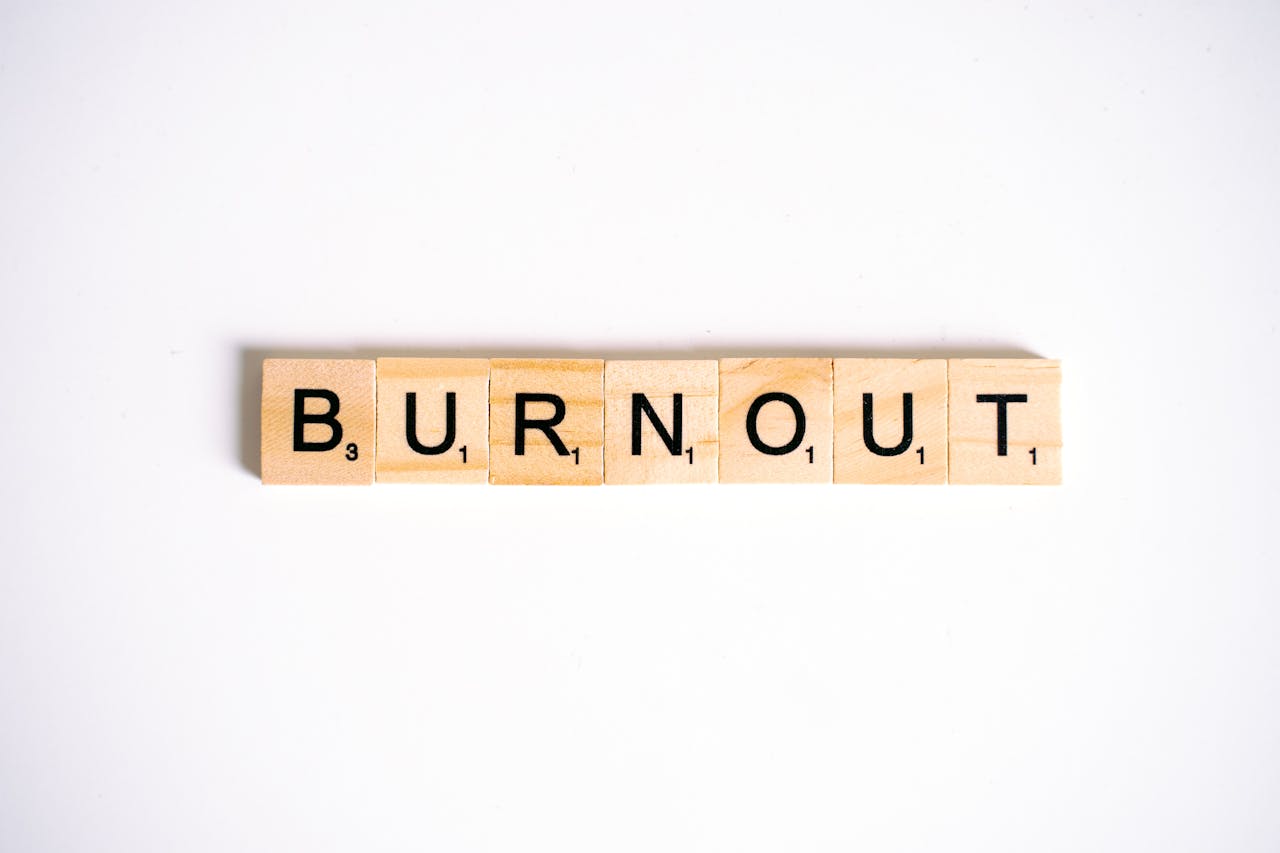

Burnout can potentially impact anyone, regardless of their industry. Some work environments are naturally more high-pressure than others. However, all companies have the potential to overwork employees if they do not pay attention and consistently expect too much from them. Some managers can get away with pushing workers past their boundaries for a short time. However, chronically overworking employees will almost certainly lead to burnout in the long run.
Burnout can lead to plummeting productivity levels and a decline in workplace morale. If your company consistently pushes team members to their breaking point, you probably have a high turnover rate, as well. This can negatively impact profits and necessitate the frequent hiring and training of new employees. The good news is that you can create a less overwhelming work environment by simply adjusting your calendar. Here are a few ways better calendar habits can help prevent workday burnout.
One of the most important observations is to watch for burnout in your employees and in yourself. Learn to recognize the signs — especially in oneself.
What Is Burnout?
Burnout is a state of exhaustion caused by chronic or prolonged stress. It often encompasses mental, emotional, and physical exhaustion and can significantly impact quality of life. The good news is that burnout is almost always preventable. The problem is that many people are unaware of how to recognize the symptoms of this condition in themselves or others. Therefore, they’re less likely to take corrective action until it’s too late.
Some of the most common signs of burnout include:
- Feelings of dread, especially when it comes time to go to work
- Lack of motivation
- Physical, emotional, or mental exhaustion
- Changes in appetite and weight
- Increasing anxiety
- Irritability and mood swings
- Gut pain, diarrhea, and other digestion-related symptoms
- Frequent illness
These are just a few of the possible signs of burnout. As you can see, this unfortunately common condition can wreak havoc on your health and sense of well-being! Whether you’re a business owner, manager, or a regular employee, it’s essential to watch for these symptoms in yourself and others. Establish wise calendaring habits (if you haven’t already) to maintain a healthy balance between work and relaxation.
How Better Calendar Habits Can Prevent Burnout
It may seem simplistic, but adjusting the way you schedule your workday can have a significant impact on burnout rates. Wise calendaring habits can help maintain a good balance between work and personal life. They can also enhance communication and prevent the stress that comes from feeling out of the loop. Here are some of the top ways to better calendar habits that can avoid burnout in the workplace.
Enhance Communication Between Teams
Rather than having each employee in your workplace maintain their own separate calendar, consider utilizing shared calendars. Google Calendar, Microsoft Calendar, and Calendar are all great options because they offer team scheduling functions. Shared calendars facilitate rapid communication between teams and keep everyone on the same page operationally. They also make it exceptionally simple to schedule team meetings and deadlines in a matter of seconds. Finally, team scheduling apps enhance instant communication between departments and individual team members.
Effective communication through shared calendaring can prevent burnout by helping team members prioritize and manage workload expectations. For example, if you notice certain employees already have overloaded schedules, you can assign urgent tasks to workers who aren’t so strapped for time. Shared calendaring can also help everyone stay organized and avoid accidental scheduling conflicts that could lead to feelings of overwhelm.
Set Realistic Expectations
Burnout can sometimes occur when you set unrealistic expectations for yourself. It’s easy to underestimate how long specific tasks take when you don’t schedule time for them in your calendar. If you’re the type of worker who tends to overpromise and under-deliver, it’s time to make some changes to the way you schedule your workday. Start inputting each task into your calendar to avoid overextending yourself and increasing your risk of burnout.
If you’re a manager who unintentionally overschedules your employees, it can help to see how long each task actually takes. Consider inviting employees to input their daily tasks into their calendars so you can track the time they spend on each item. That way, you can start developing more realistic expectations regarding how long everyday jobs take. This knowledge will enable you to assign a reasonable daily workload to each employee and prevent overburdening them.
Make It Easier to Avoid Procrastination
Do you tend to put off projects until the last minute, then scramble to get them done by the deadline? If you’re a chronic procrastinator, your chances of experiencing burnout at some point in your career are elevated. Often, procrastination is less about laziness and more about ineffective time management. You might think you have plenty of time to complete an upcoming project until you realize you’re painfully mistaken. Fortunately, changing your calendaring habits can help you avoid procrastination and the associated stress that often accompanies it.
“Timeboxing” is one of the most effective calendar habits to help you avoid procrastination. This method involves reserving blocks of time for specific tasks. It requires you to approach big goals in small, manageable sections so you don’t end up needing to do everything at the last second. When using the timeboxing method, it’s often helpful to tackle the most challenging tasks on your list first. That way, you’ll be left with the easiest, least stressful action items as your deadline approaches.
Support Greater Work-Life Balance
Burnout frequently occurs when your work and personal life become imbalanced. Letting your professional responsibilities take over your entire day will almost certainly lead to excessive stress and anxiety. It can also negatively impact your personal relationships, potentially pushing you even closer to the brink of burnout. To achieve a more harmonious relationship between work and enjoyment, you may need to change your calendar habits. If you’re currently only scheduling work meetings and responsibilities into your calendar, it’s time to do things differently.
People who maintain a good work-life balance often schedule time off right into their calendars. For example, they may set an alarm when the workday is officially over and it’s time to head home. Alternatively, they might schedule official events in their calendar for specific dates, such as playtime with kids, lunch with friends, and other personal commitments. Scheduling personal events into your calendar gives them the same importance as any work meeting or commitment.
Prevent Overcommitment
Some people are naturally driven to go the extra mile and take on more than they can comfortably handle. Being a self-motivated person is great, but it can be problematic when it causes you to shoulder the bulk of the work when others could help. Overcommitting yourself might temporarily make you a more valuable employee, but it will eventually lead to burnout. The same is true for employers who consistently force their employees to overcommit to things they can’t handle.
Adopting better calendar habits can help you avoid overcommitting yourself or those who report to you. Digital calendars can help you outline daily tasks, meetings, and deadlines. To avoid overcommitment, consider utilizing the Eisenhower Matrix when scheduling your workday or workweek. This technique requires you to sort responsibilities by order of importance and urgency. Anything that’s not important or urgent should be scheduled for a later date in your calendar to avoid over-commitment.
Conclusion
Burnout often occurs when your calendar habits become too burdensome for you or your employees. It’s essential to recognize that your life and the lives of your employees extend beyond a 9-to-5 job. Failing to identify and address signs of burnout can lead to physical and mental health issues, as well as declining productivity. Getting ahead of the problem by changing your calendar habits is far better than quitting your job or experiencing a high employee turnover rate. Implement some of these tips into your workday scheduling routine to reduce stress and improve efficiency in the workplace.
Featured Image Credit: Photo by Anna Tarazevich; Pexels











John Hall
John Hall is the co-founder of Calendar a scheduling and time management app. He’s also a keynote speaker that you can book at http://www.johnhallspeaking.com.